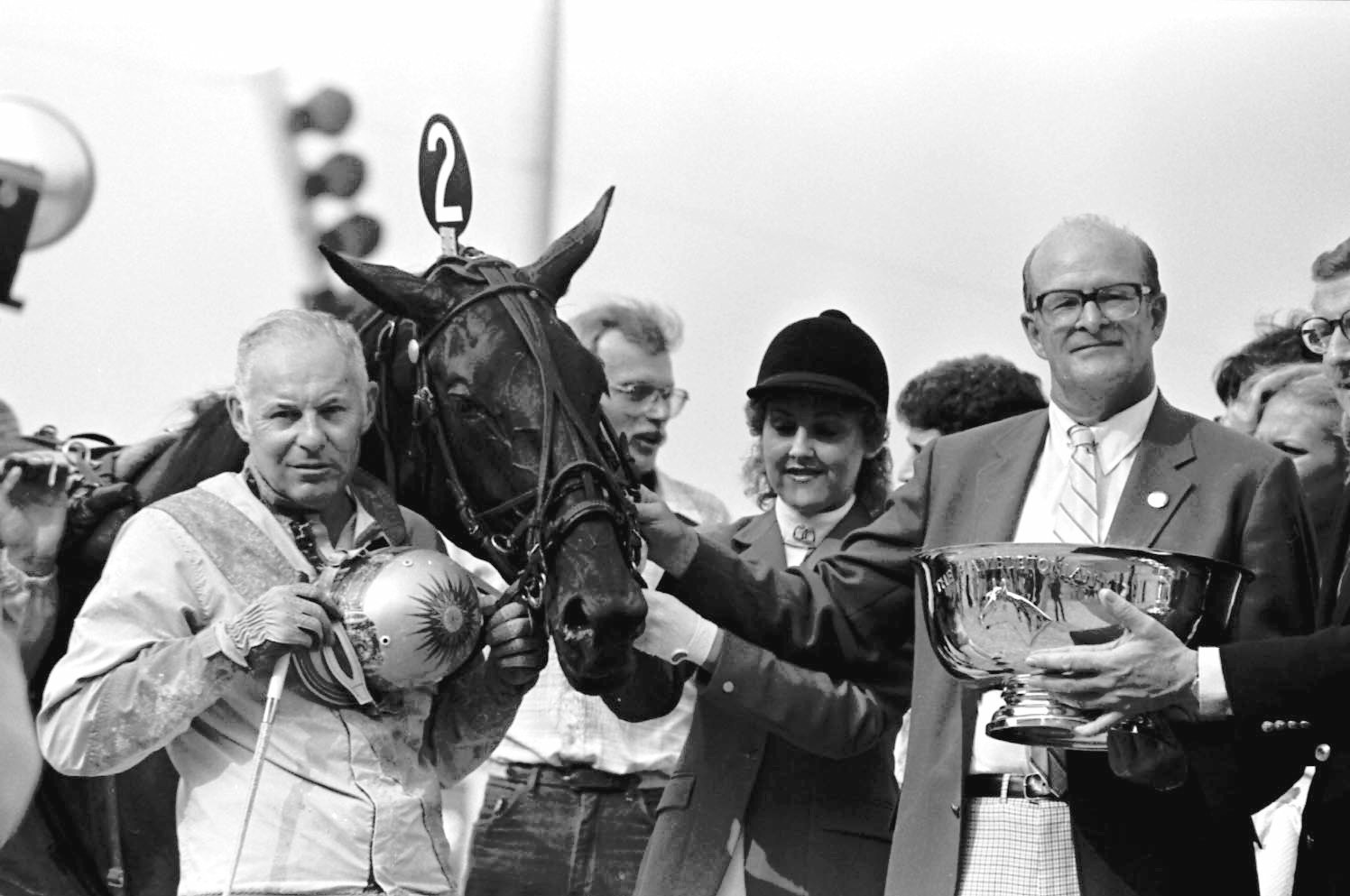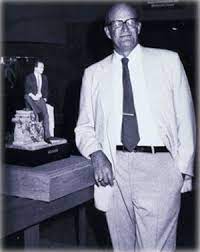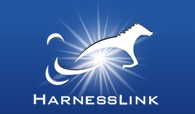Don’t get so excited, boys. We’re talkin’ horses here!
We are approaching the 20th anniversary of the passing of Norman Woolworth, who, to this day, has such a profound influence on our harness racing sport, which will last forever. Woolworth, with trainer-driver Stanley Dancer, were household names in the industry.

Born December 7, 1926, Woolworth was not only a great horseman in all areas of our industry, but his sense of humor was also legendary.
He loved all sports, including baseball, football, hockey, boxing, hunting, fishing, bowling, tennis and golf…and he even had some tours around racing ovals as an amateur driver.
He was also well known for the monikers he bestowed upon the members of his equine family over the years.
In a conversation we had around 1980, he asked me if I played golf. I joked, “No, I was Illinois State Singles champion in bowling in 1970…and I very rarely ever lost a bowling ball!”
He came back at me with the solution, saying, “You can shoot 70 in golf every time by just playing UNTIL you reach 70. Whether it’s the third hole or the sixth hole, just quit when you get to 70!”
One night witnessing a boxing match, a fighter’s mouthpiece was knockout of his mouth and wound up in his wife’s lap! She threw it back into the ring. When they went to their next fight, the same thing appeared but, this time, what fell on her lap was one of those chattering false teeth clicking around that Norman had picked up at a trick shop!

His Stoner Creek Farm and Clearview Stables were—and are—legendary, as well, and Panty Raid is just one of hundreds with which he was involved until his passing in July of 2003.
Panty Raid, of course, during her storied two-year career beginning in 1980, won 24 of 44 starts and $473,932 with Sex Appeal, Stag Party, Date Bait and Pillow Talk eventually named in that same sporty vein. From Panty Raid, herself, came Pink Cheeks and Dormitory.
Among his early stars were Muncy Hanover, Bright Knight, Egyptian Princess and Porterhouse, the latter a winner of the fabled American Trotting Championship in 1962.
Some of his other clever names bestowed were The Mummy, Green Hornet and King Kong. Others included Fresh Egg, Rotten Egg, Hard Boiled Egg, Two Minute Egg and Soft Boiled.
Another oddity in the Clearview Stables back then were twins-Tweedledum and Tweedledee—both beating long odds to survive and make it to the races.
In June of 1963, Woolworth added a three-year-old pacer to his roster…one who would change the face of harness racing forever—Meadow Skipper.
His love of fishing and seafood is shown with the names of some of the offspring he has bred—like Filet Of Sole and others like Crab Cakes, Crayfish, Calamari, Fish Fry and, of course, Bonefish, named after the fastest fish in the ocean. He even named one horse Appetizer, then, of course, the aptly named Caesar Salad before the “main course,” Chateaubriand, Pork Chop, Lamb Chop and Roast Chicken. By the way, Filet Mignon’s second foal was named Tenderloin.
“II guess it really started with Porterhouse,” Woolworth said, “I had recently hooked up with Earle Avery and one of our first purchases was Filet Mignon. We bred her to Rodney and the result was Porterhouse. But, eventually,” he laughed, “I started to run out of cuts of meat!”
Maybe that’s why he had to go to names like Gnocchi and Spaghetti for an Italian specialty or two with desserts like Baked Alaska, Peach Cobbler and Danish.
Woolworth had his share of luck—both good and “not-so-good”—over the years with one thing quickly coming to mind.
“My brother, Fred, and I were running the horse operation and, in 1956, he joined the syndicate to buy the Tigers (Detroit) and that left me with the whole operation. I decided to sell half of them (there were about 75) with one being Betty Frost. We had bred her—she was an Adios mare—to Knight Star but, at sale time, she was sick and her foal was quite a puny looking thing…so I kept them both. That foal was Bright Knight who won the Empire Pace at Yonkers with the winner’s share over $68,000!”
Muncy Hanover, an early star for Woolworth, was bought for $25,000.
“I was after an Adios horse and Muncy had good looking legs, but he was very small. He didn’t grow all that much more, but he was very fast and set a world record for three-year-olds when he won a heat of the (Little Brown) Jug in 1:58 3/5. He was retired as a six-year-old with earnings of $220,000.” ($220,768)
On the bad luck side of the ledger, Egyptian Princess, a $2,000 yearling buy, won a bunch of stake races and Woolworth thought she had a chance to win the Hambletonian—the last one raced at Goshen. “In the first heat,” he lamented, “she got her left foot caught in a sulky wheel in front of her and much of her hoof was ripped off. The blacksmith built it up between heats, but she just wasn’t the same.”
But, since our conversation years back, Woolworth has had his share of great moments like French Chef as a 1980 two-year-old, and, of course, the grand filly Duenna, winner of the 1983 Hambletonian, Duenna.
It was in 1964 that Woolworth, along with David Johnston, purchased Stoner Creek Stud, a thoroughbred farm home to the great Count Fleet, Triple Crown Champion of 1943. They converted the farm into a standardbred facility with Meadow Skipper leading the way with his first-generation including Albatross, Handle With Care, Most Happy Fella, Governor Skipper, Seatrain and Genghis Khan, among others.
Woolworth’s impact was not limited to the United States as he sold horses to folk throughout Europe, New Zealand, Australia, Japan and, even, South Africa.
There are many other memorable names, too, like Red Hot Mama’s sons Little Devil, Traveling Salesman ad Bon Vivant.
Norman Woolworth had a compassionate side, as well. The great mare Belle Acton was put in the Tattersalls sale when she, as an aging broodmare, was having reproductive problems. He made the purchase and retired her to “Menopause Manor,” a section reserved for such deserving “ladies.”
He was very active as a member of the Hambletonian Society and Harness Racing Museum Hall of Fame and was inducted into the Hall of Fame in 1982.
While Woolworth was so innovative with naming his Standardbreds, there, truly, is no name great enough to describe his grand influence in the standardbred industry.
by John Berry, for Harnesslink

 USA
USA Canada
Canada Australia
Australia New Zealand
New Zealand Europe
Europe UK / IRE
UK / IRE


